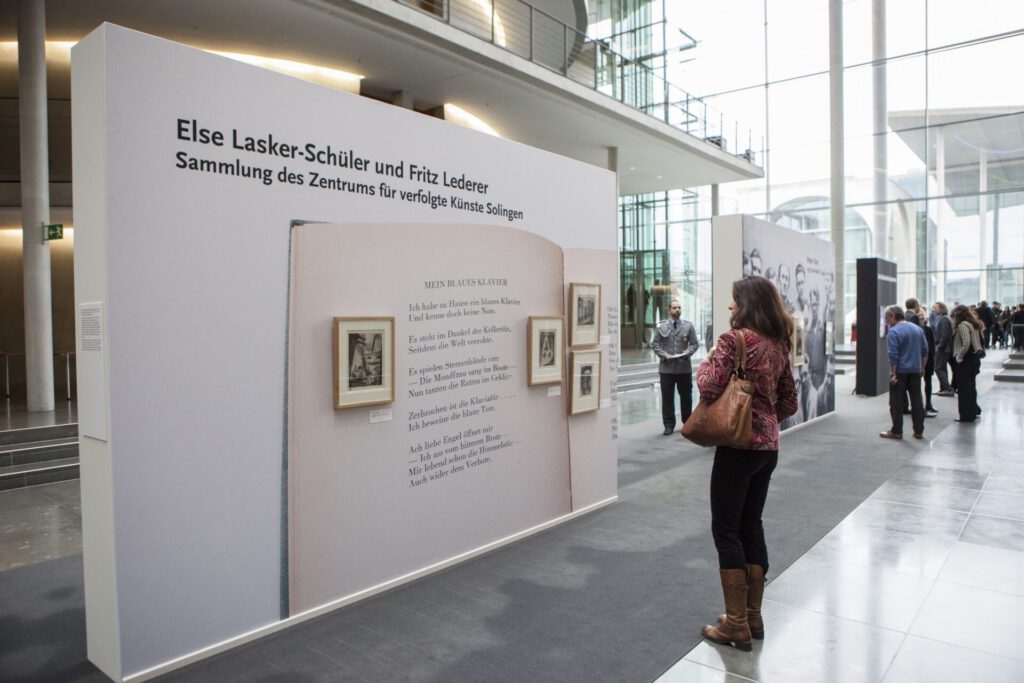On the occasion of the 70th anniversary of the liberation of the Auschwitz concentration camp, Bundestag Vice-President Claudia Roth and Bundestag Vice-President Peter Hintze opened the exhibition “Death does not have the last word – no one witnesses for the witness” in the Paul Löbe house on January 27, 2015. The exhibition featured works of art by direct and indirect victims, those murdered and survivors, as well as works by subsequent generations from the Auschwitz and Theresienstadt memorials. This was followed by a discussion with the artist, art professor and Auschwitz survivor Yehuda Bacon.
„To meet with Yehuda Bacon and Sigalit Landau in Jerusalem, I flew to Israel in February 2014. In Jerusalem, I always have the great honor of living with Greta Klingsberg. After the founding of the state, she helped build up radio in Israel; and she also survived Theresienstadt and Auschwitz. One February evening, I thus sat with her at the kitchen table. We hadn’t seen each other for a long time, and there was a lot to talk about while drinking good red wine. One topic was a graphic novel that she had been given by her friends for her eighty-fourth birthday. She said in her own inimitable way: ‘Hogwash, comics, I don’t like them at all; they knew that, for me they are nothing. I’m for literature, Jürgen! The first comic in my life. I just wanted to look at it, started reading, and couldn’t stop. This book is true. With a lot of feeling and great drawings, Kichka captured exactly the mood that we, the survivors, had and have. The silence in the first decades, then the dam burst, and later the interest of the younger generations in us. The difficulties in the families, in the immediate surroundings. The problem of not getting out of the camp ourselves, and dragging others into it.’ Greta wanted to meet Kichka. She had already looked up his phone number, but there was no real reason for her to call him yet. Answering machine, message left. The next day we actually met, and we agreed on further cooperation. Thanks Greta!“
– Jürgen Kaumkötter, Director of the Center for Persecuted Arts, Solingen

